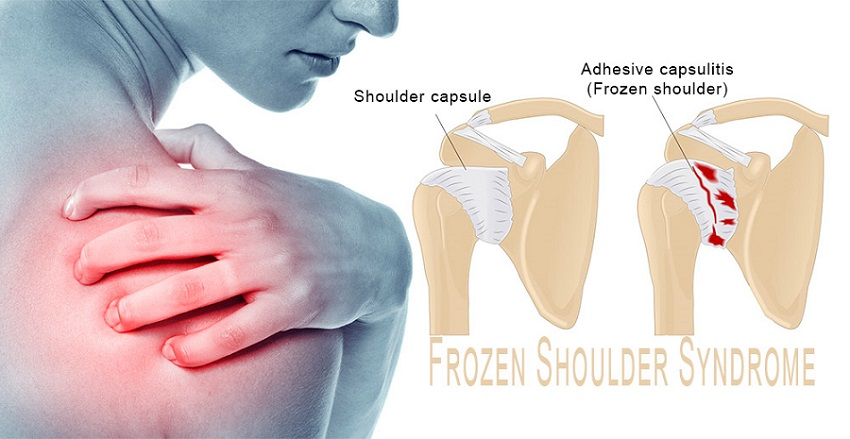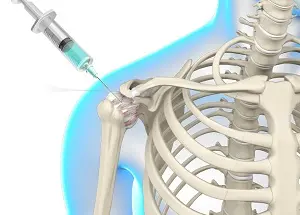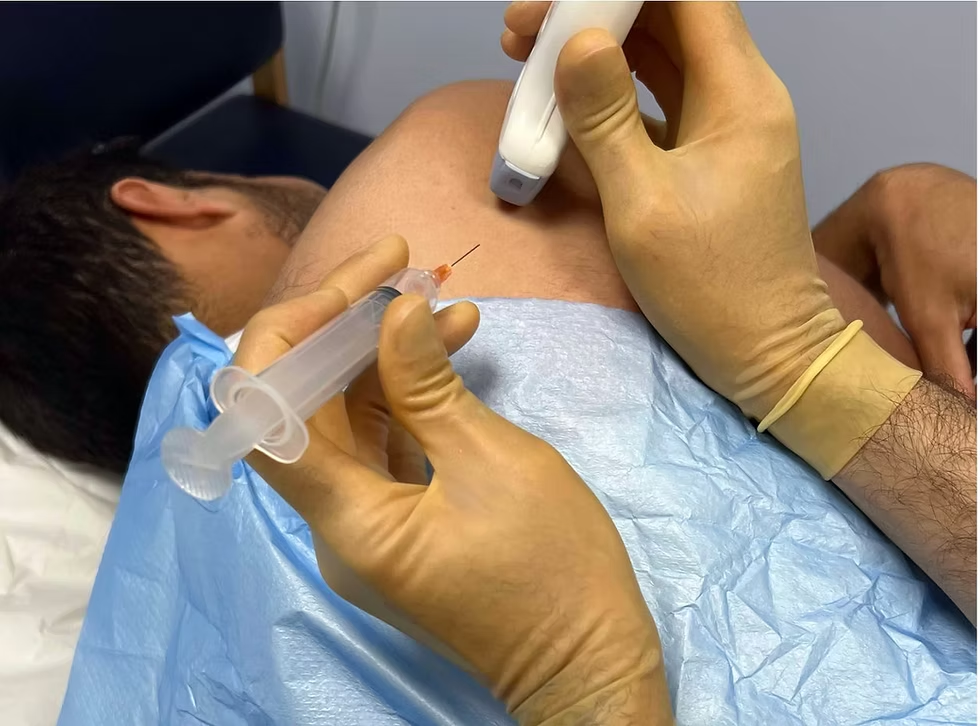Mitigate Pain Clinic – Dr Jeshnu Tople – Pain Management Specialist In Nagpur
Shoulder Hydrodilatation for Frozen Shoulder
Shoulder Hydrodilatation for Frozen Shoulder A Game Changing Interventional Procedure
What is a Frozen Shoulder?
What is Shoulder Hydrodilatation?


How Does Shoulder Hydrodilatation Work?
- Injection of fluid: A pain physician injects a mixture of saline solution and an anesthetic directly into the shoulder joint. The saline stretches the capsule, breaking up adhesions (scar tissue) and allowing the joint to move more freely.
- Pressure effect: The expansion of the joint from the injected fluid helps release the tightness that causes limited movement.
- Anti-inflammatory action: It helps reduce inflammation and ease discomfort during the healing process.
Who is a Candidate for Shoulder Hydrodilatation?
Shoulder hydrodilatation is typically recommended for individuals with frozen shoulder who have not responded to other conservative treatments like physical therapy and medications. If your shoulder pain persists and significantly affects your daily life, this procedure may be the ideal next step in your treatment plan.
Who May Benefit from Shoulder Hydrodilatation?
- Difficulty with overhead arm movements
- Chronic shoulder pain that worsens at night
- Reduced shoulder movement despite physical therapy
- Persistent shoulder pain and stiffness that limits normal activities
Benefits of Shoulder Hydrodilatation
Patients who undergo shoulder hydrodilatation at Mitigate Pain Clinic can experience a wide range of benefits, including:
1. Minimally Invasive as it is a non-surgical procedure, requiring only an injection to achieve results.
2. Pain Relief – Most patients notice significant shoulder pain relief after the procedure, thereby helping the patient to continue physiotherapy to further improve shoulder mobility.
3. Increased Range of Motion – Hydrodilatation can quickly improve shoulder mobility.
4. Reduced Recovery Time – Compared to surgical options, hydrodilatation offers a faster recovery time, allowing patients to return to their normal activities sooner.
5. Long-Lasting Results – Shoulder hydrodilatation can provide lasting relief from pain and stiffness, especially when paired with a guided physical therapy program.
Shoulder Hydrodilatation Procedure at Mitigate Pain Clinic
Step 1: Initial Consultation
Before the procedure, you will undergo a thorough consultation with our pain management specialist.
Step 2: Procedure Preparation
You will be positioned comfortably, and the area around your shoulder will be cleaned with antiseptic.
Step 3: Injection Process
Using ultrasound to guide the needle, interventional pain physician will inject the fluid mixture into the shoulder joint. The entire procedure typically takes about 30 minutes.
Step 4: Post-Procedure Recovery
After the procedure, you may experience mild discomfort or pressure in your shoulder, but this typically resolves within a few days. Light activities can be resumed within a day or two. Physiotherapy should be continued for best outcome.

Why Choose Mitigate Pain Clinic for Frozen Shoulder and Shoulder Pain?
At Mitigate Pain Clinic, we specialize in interventional pain management techniques that provide effective, minimally invasive solutions for chronic pain conditions. Key Reasons to Choose Us:
- Expertise: We have extensive experience performing shoulder hydrodilatation and other interventional procedures, ensuring safe and successful outcomes.
- Patient-Centered Care: We take the time to understand your unique needs and customize a treatment plan tailored to your specific condition.
- Advanced Technology: Using state-of-the-art imaging techniques, we provide precise and accurate treatments for faster recovery and better results.
Conclusion
Shoulder hydrodilatation is a safe and effective treatment for frozen shoulder, offering relief from shoulder pain and shoulder stiffness while promoting faster recovery.
At Mitigate Pain Clinic, we are committed to helping our patients regain their mobility and improve their quality of life through personalized interventional pain management treatments.
If you are suffering from a frozen shoulder, contact us today to schedule a consultation and find out if shoulder hydrodilatation is right for you.